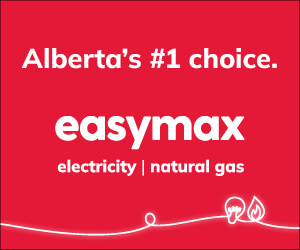Mental health needs are receiving more attention in recent years, but there still remain huge gaps in understanding and acceptance of mental health issues. Community members often suffer in silence due to stigma that prevents people from asking for help or discussing addictions, suicide and life trauma openly with their friends, colleagues or family members.
Distinguishing poor mental health from mental illness can sometimes be difficult but important, because treatment approaches differ greatly. True mental illness is relatively rare and requires specialized psychiatric treatment, and sometimes hospitalization. Poor mental health, on the other hand, is common and stems from life events such as loss of a job or relationship, stresses from food or housing insecurity or from loneliness and social isolation.
We know, for example, that Canadians in the lowest income bracket are 3 to 4 times more likely than the highest income Canadians to be labelled as suffering from mental illness. Data from the United States indicates that vulnerable populations are medicated with psychoactive medications at higher rates than the rest of the population. Children in foster care, those involved with the criminal justice system and black and Hispanic boys are systemically administered antipsychotics or other drugs to control their behaviour.
Worrying and feeling sad or uncomfortable are a normal part of the human condition and can be expected responses to life events. Grassroots and community-led offerings like the events are key in building resilience and promoting ways to increase and maintain good mental health. Sharing circles and communal activities such as singing, dancing or cooking with others are key to building social connection and supports.
Some of what we label as mental illness is a response to very difficult or unfair life circumstances. Many Albertans suffer from food and housing insecurity. Those employed in low-wage jobs with little job security and few benefits suffer from significant financial and job-related stresses that lead to anxiety, depression, substance misuse or even suicide. New arrivals to the community don’t have natural support networks of family and friends in close proximity.
Temporary foreign workers face added stresses related to immigration rules and closed work permits that take away their freedom to choose their employer or job. Some Albertans also face oppression or discrimination based on race, gender, sexual orientation, or Indigenous status.
But we must be careful not to characterize external problems such as poverty, housing insecurity, or racism as internal problems requiring medication or talk therapy to “fix” the individual. Instead, we must direct efforts at correcting the societal problems that put some people into situations that are toxic to their physical and mental health.
Living wages, affordable housing, food security and social inclusion are system solutions that we need to advocate for and implement to provide a permanent boost to mental health for Albertans. We can also increase social connectedness among residents, ensuring that no-one, particularly the elderly or others living on their own, suffer from loneliness and isolation. Municipalities can design towns to bring people together, provide natural spaces for recreation and opportunities for safe and accessible physical activity.
Harmful use of substances is a significant problem in communities in Alberta and alcohol is the most commonly used substance. In 2017, the economic costs of alcohol-related harm totaled $16 billion dollars in Canada. Governments bear direct costs within the health care and criminal justice systems, but indirect costs are largely borne by employers and family members. For most adults, alcohol poses a bigger risk to health than other drugs and many of the previously touted health benefits of moderate drinking have largely been disproven.
When liquor sales were privatized in Alberta in the 1990s, alcohol consumption increased in our province while consumption in the rest of the country was in decline. Privatization also led to more drunk driving charges in Alberta and to reduced government revenues. Excess capacity in the system created by privatization caused alcohol prices to increase and the government felt that it had to cut taxes on alcohol to bring liquor prices more in line with the rest of the country. Government costs for regulation and enforcement also went up. Effectively, taxpayers were subsidizing the private companies that were now tasked with selling alcohol in the province.
Alcohol is related to lost productivity, family violence and increased crime including homicide and sexual assault in our communities. Some of the most effective methods for reducing crime and other alcohol harms in municipalities is limiting alcohol licences and density of retail outlets and reducing the hours alcohol is served or sold. We have much work to do, and we will succeed if elected officials and community members work together to make our communities healthier.
By Vamini Selvanandan© 2025. This work is licensed under a Creative Commons CC BY 4.0 license.
No health without mental health
In response to Canada's Online News Act and Meta (Facebook and Instagram) removing access to Canada's local news from their platforms, Anchor Media Inc encourages you to get your news directly from your trusted source by bookmarking this site and downloading the Rogue Radio App. Send your news tips, story ideas, pictures, and videos to info@anchormedia.ca.






